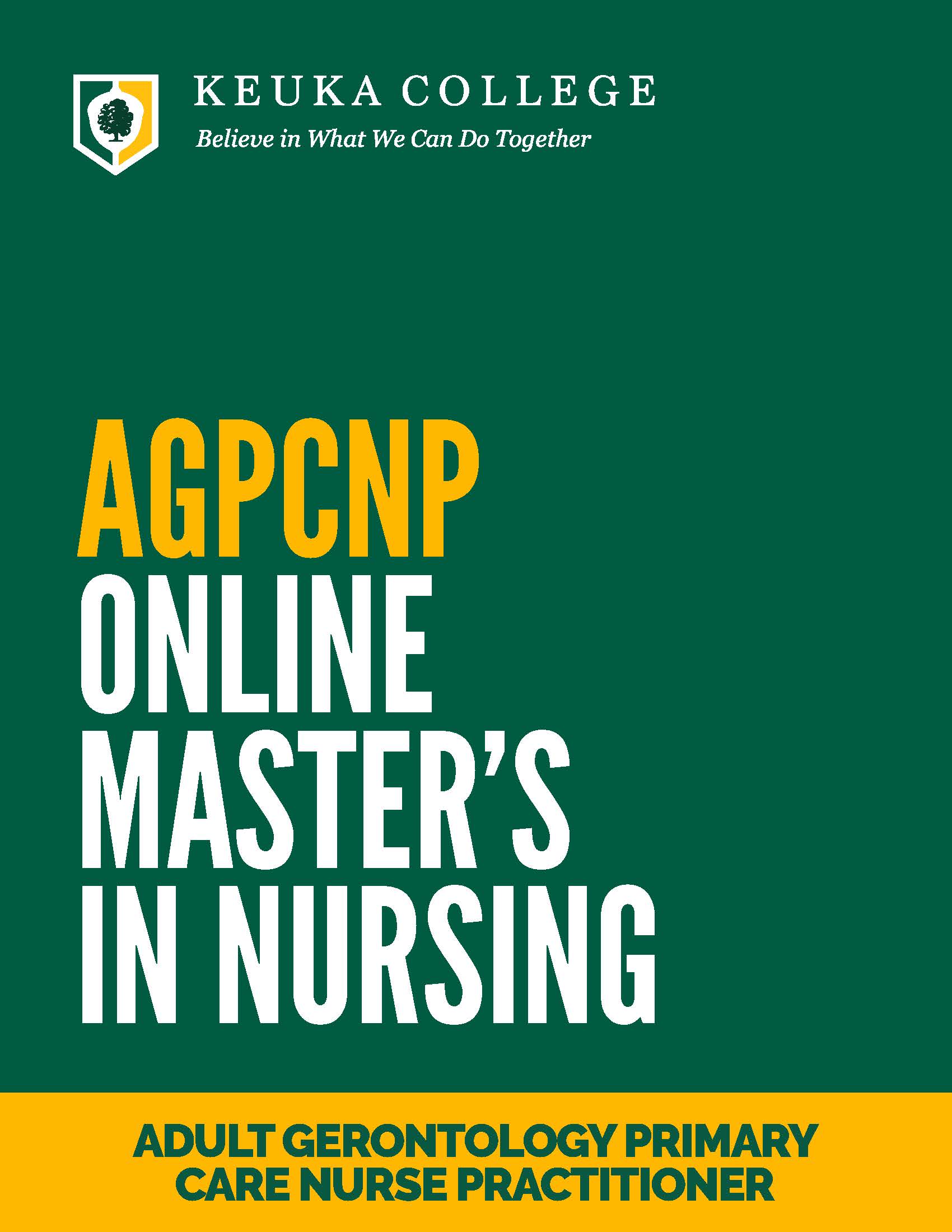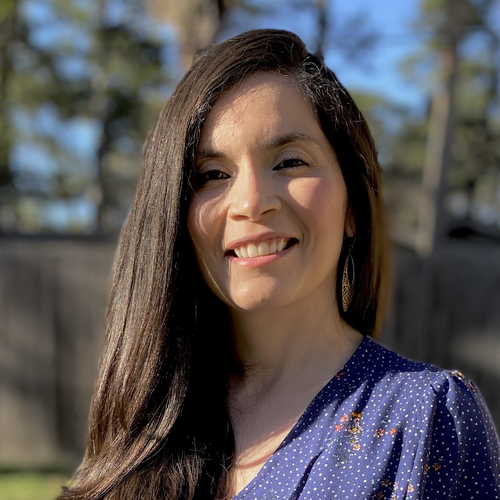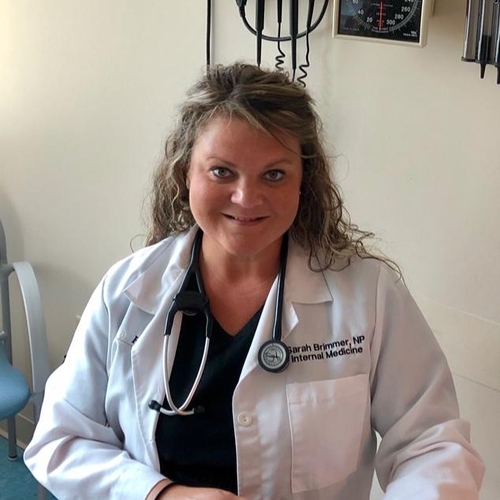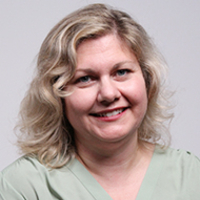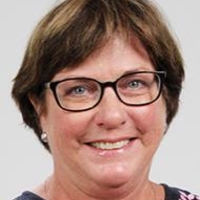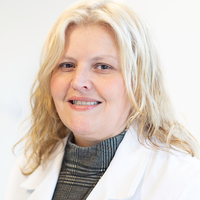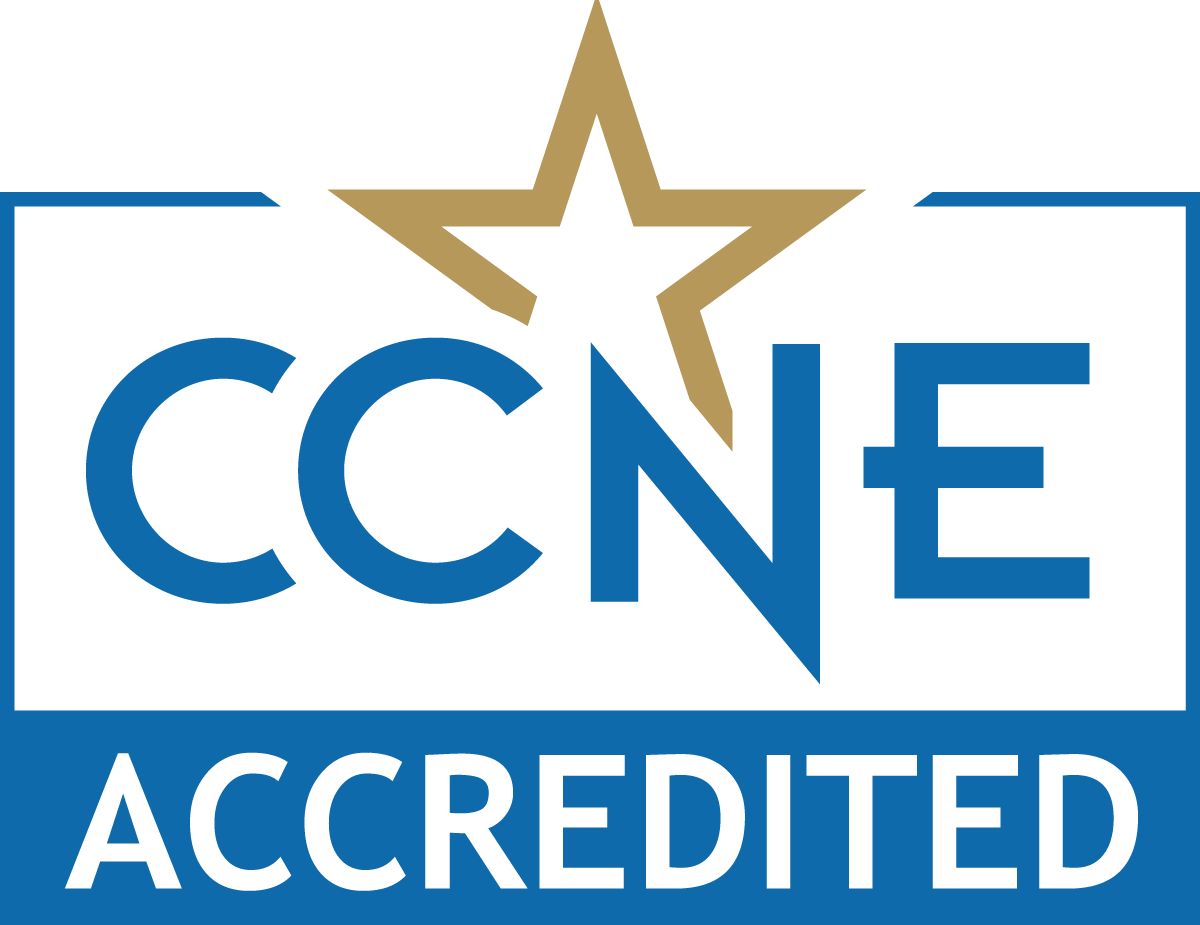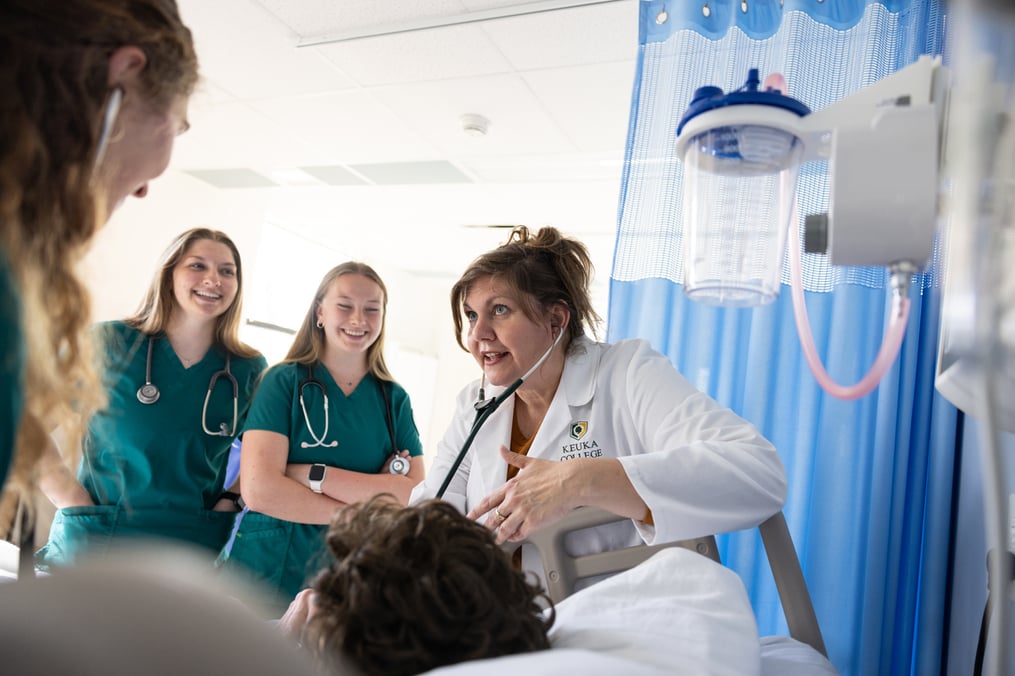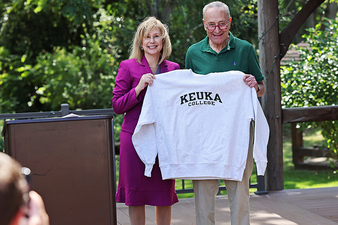Unlock Your Potential as an Adult Gerontology Primary Care Nurse Practitioner
Are you looking to take the next step in your career? Our Adult Gerontology Primary Care Nurse Practitioner program is exactly what you need to prepare for an exciting career in Advanced Practice.
Our comprehensive program is fully online, allowing you to complete your coursework, assignments, and homework from anywhere, at times that fit your schedule. Additionally, you'll benefit from on-site immersions, spending one to two days each semester on campus for essential in-class and lab work, lectures, and exams.
You'll learn from experienced faculty members and collaborate with other passionate nursing professionals, all within a supportive community dedicated to helping you reach your full potential.
And the best part? Upon successfully completing the program, you'll be fully prepared to take the American Nurse Credentialing Center or American Academy of Nurse Practitioners national certification examination for Advanced Practice. This means you'll be ready to hit the ground running and make a real difference in the lives of the patients you serve.
Take the first step towards your dream career as an Adult Gerontology Primary Care Nurse Practitioner and apply to our program today!
Master’s Degree Program
- Designed for those who have a bachelor’s degree in nursing
- Work on assignments and readings online when it fits your schedule
- Clinical requirements can be completed close to home, and there's plenty of support available to find the right placement for your goals
- Complete in-person labs on campus each semester
- You can complete the program in 24 months
Certificate Program
- Designed for those who have a master’s degree in nursing (MSN)
- Clinical requirements can be completed close to home, and there's plenty of support available to find the right placement for your goals
- Complete assignments and readings online when it fits your schedule
- You can complete the program in 17 months
Admission Requirements
- Completion of a bachelor's degree from an accredited Nursing program
- Minimum cumulative grade point average of 3.0 on a 4.0 scale
- An unencumbered New York State license and current registration as a Registered Nurse (RN)
- An appropriate combination of healthcare experience and professionalism demonstrated through 2 clinical/professional recommendations
- To optimize your success, we recommend you own a computing device that conforms to Keuka College's minimum IT standards.

